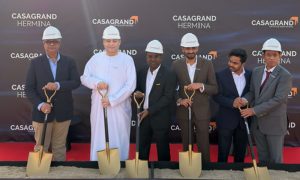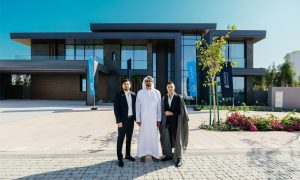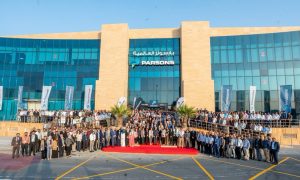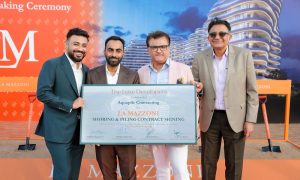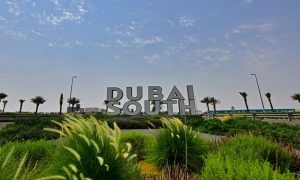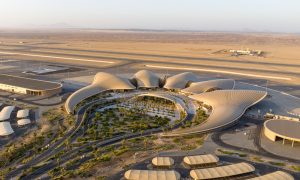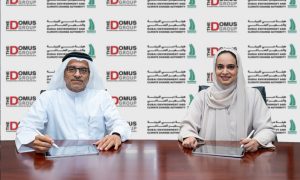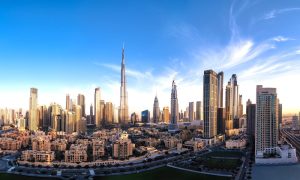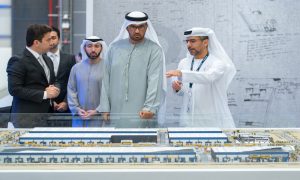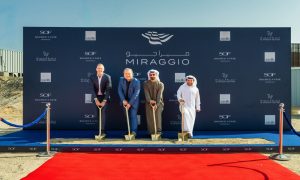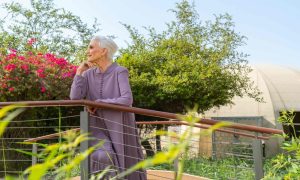Delivering Abu Dhabi’s sustainable ambitions
Big Project Middle East speaks to Craig Griffin, Operations Manager – Construction at ALEC Engineering & Contracting about the delivery of Abu Dhabi’s first waste-to-energy facility
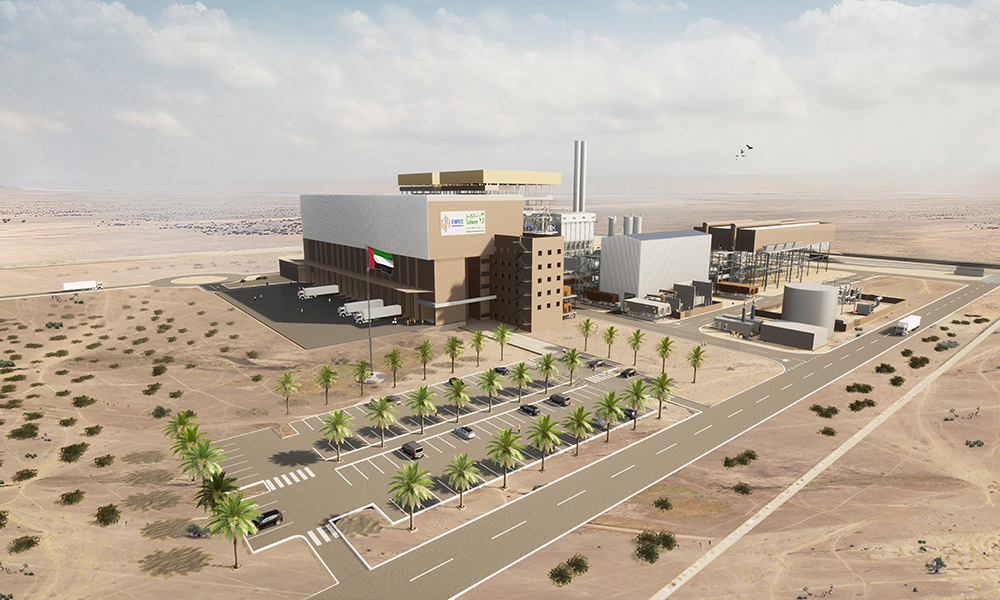
In April 2024 it was announced that the integrated joint venture (JV) between ALEC Engineering & Contracting (ALEC) and BUTEC had been selected to build a waste-to-energy (WtE) plant in Abu Dhabi. The project is being driven by a special purpose vehicle (SPV) – Al Bihouth Waste to Energy Developer Holding Co Ltd – which is a consortium comprising Hitachi Zosen Inova, Marubeni, JOIN and TADWEER.
The plant will be the first facility of its kind in the UAE’s capital, with the ultra-large incineration facility being developed to process 900,000 tonnes of non-recyclable waste annually over the next 30 years. Located near the Al-Dhafra landfill, the project aims to prevent the release of nearly 1.1m tonnes of CO2-equivalent emissions annually. In addition, the plant is expected to add 80MW of power generation capacity from a non-fossil fuel source.
Per the terms of the deal, the ALEC BUTEC JV will oversee the engineering, procurement, and construction (EPC) of all non-process-related activities, encompassing works such as civil engineering, concrete and structural steel work, installation of mechanical, electrical, and plumbing (MEP) systems, as well as building services. The JV will also manage external works and site infrastructure development.
Here, Big Project Middle East speaks to Craig Griffin, Operations Manager – Construction at ALEC about the UAE’s WtE market, the project’s vision and its delivery.
- What is the vision that Al Bihouth Waste to Energy Developer Holding has for this project?
The vision for the project is to continue the emirate’s goal to become greener and more energy efficient whilst reducing its reliance upon carbon fuels. The plant when fully operational shall dispose of 900,000t of waste from Abu Dhabi, which in turn generates enough power to supply approximately 50,000 homes. This will also eliminate carbon emission emissions equivalent to1.1m tons or 240,000 cars on the roads.
- What are some of the key goals that the client has outlined for this WtE project?
As you would expect, it is to complete the works as per the time requirements and quality standards required with the highest safety standards being maintained at all times. All of this is to be done in an open environment where everyone can speak freely and all act in the benefit of the project.
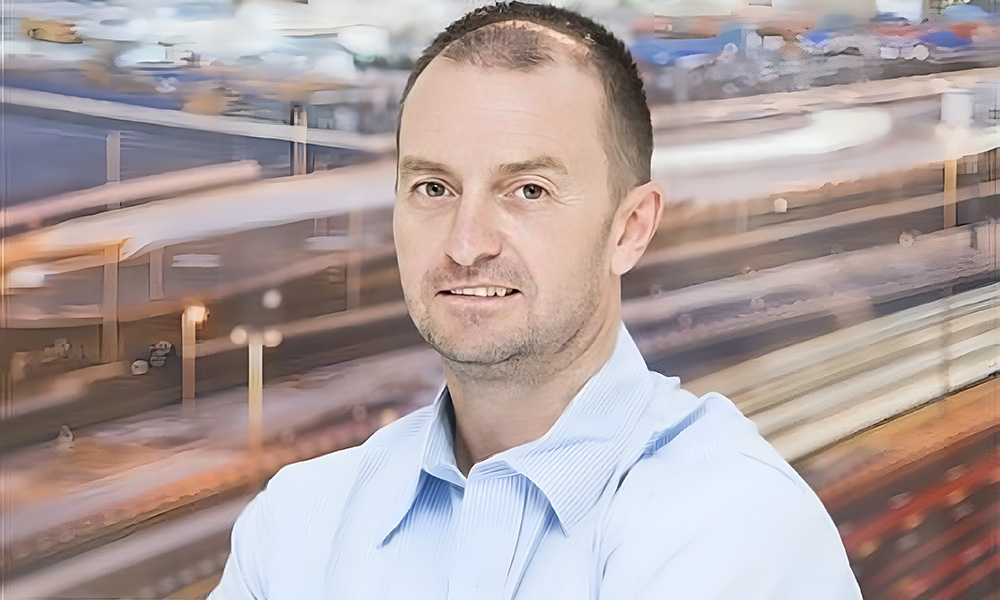
Craig Griffin, Operations Manager – Construction at ALEC
- What is ALEC’s perception of the UAE’s WtE market, and do you anticipate seeing a greater number of these projects announced in the coming years?
The Abu Dhabi Waste to Energy Plant will be the third plant producing energy from waste in the UAE. This follows the successful completion of the Sharjah project, as well as the recently opened plant in Dubai. With the UAE’s goal of greener and more efficient energy production, and its policy on diverting 75% of waste from landfills, WTE projects assist with all of these targets.
With regards to future projects, yes in our opinion this will not be the final project within the UAE. There are other emirates and opportunities for expansion of the market within the country, which can benefit from generating power from waste and reducing the necessity for landfills.
- Outline ALEC’s expertise on waste to energy projects and/or similar projects and share what learnings ALEC will take from those other projects to ensure it is successfully delivered?
ALEC brings its expertise in large complex projects requiring detailed planning and coordination, along with the knowledge and experience BUTEC gained from their previous WTE plant which was completed in Sharjah.
The key to the success of this project is the interaction between all parties of the EPC to ensure that milestone dates for the handover of specific areas are achieved. This will involve monitoring all activities in line with the agreed timelines to ensure follow on activities can start for process equipment installation. We also aim for the early appointment of subcontractors to allow the preparation of drawings and materials to ensure everything is ready ahead of time for installation.
- How did ALEC come to win this project and what are its timelines? Which divisions of ALEC will be involved in this project’s delivery?
We became involved in the project through our JV with BUTEC. BUTEC were involved with the Sharjah Waste to Energy plant and were contacted by Hitachi Zosen Inova (HZI) about the opportunity of participating in the Abu Dhabi project. So, with the ALEC BUTEC partnership already in place, it created the perfect opportunity for us all to participate.
There has been quite a long tender and adjudication process with the initial tender being released in mid-2022. The tender has involved an incredible amount of work being completed on the design by both HZI and ALEC BUTEC JV, the civil elements of this are dependent upon the facility’s process design being completed to allow the correct allowances to be made. But this has given us a good insight into what needs to be constructed and allowed for detailed planning to take place.
The ALEC BUTEC JV will execute the project using ALEC’s expertise in the civil works and BUTEC’s expertise in the engineering and MEP works. Once financial close is achieved, the construction period will take 36 months to complete. Civil works will take approximately 12 months with phased handover of various areas, which allows for the mechanical process equipment installation to commence by HZI in the required sequence.

- What is the scope of services/project delivery that ALEC will undertake for the Abu Dhabi WtE project?
As the EPC contractor along with HZI, ALEC and its JV partner BUTEC are responsible for the design and approval of all civil activities on site. This includes all reinforced concrete works in addition to the construction of any non-process buildings and workshops.
The roads and utilities infrastructure to the project site are also part of our scope of work. Internally all MEP installations relating to power and lighting and any ELV infrastructure also fall under this remit. The JV is also responsible for the management and maintenance of the site for the duration of the works, including all temporary power and water.
- What are some of the challenges that ALEC anticipates it will encounter on this project, and how will these be tackled?
As with all projects there will be challenges. These are generally linked to the design and changes that must be implemented as the works are proceeding. With the WtE project being an EPC contract, we are in control of the design for our elements of work so this should eliminate the necessity for change.
What will no doubt aid our ability to overcome any challenges is the knowledge and experience that HZI brings. They have constructed numerous facilities, and their design is highly advanced. This is due to the amount of detail that was prepared and finalised through the tender process. In addition to this we have a pre-construction phase where we have planned all design activities in line with the necessary design approvals from ADM and in turn linking this to the programme of works.
- What are some of the project’s key sustainability focused elements during construction? Will ALEC be involved in post construction operations of the facility, and if so, what efficiency is the project being designed for?
With the entire project being related to sustainable energy and environmentally-friendly production of power, we have always tried to ensure that the design is as efficient as possible. Whilst ensuring compliance with construction regulations, the quantity of rebar and concrete has been optimised as much as possible to further reduce the carbon footprint of the project.
We will be implementing our usual practices for re-cycling waste as per the ESTIDAMA Pearl rating systems applicable to the project requirements as the project progresses. In conjunction with this, we are maximising our utilisation of locally sourced materials.
The ALEC BUTEC JV will not be part of the operations and maintenance of the facility once it has been completed, this will fall under the remit of Hitachi Zosen Inova.
